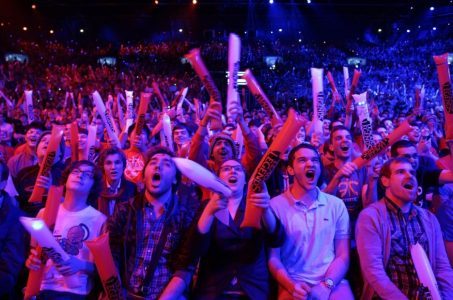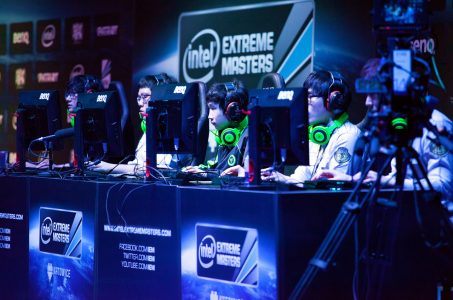New Jersey Gamblers Can Now be Electrified by Esports Wagering as State Joins Video Game Tournament Betting Fray
Posted on: November 10, 2019, 03:00h.
Last updated on: November 8, 2019, 12:10h.
The New Jersey Division of Gaming Enforcement (DGE) on Thursday cleared the way for the state’s sportsbook operators to begin taking wagers on esports competitions. It is the latest sign that traditional gaming companies are looking to tap into the new, fast-growing segment of the betting market.

The first esports wager in the Garden State was placed at MGM Resorts International’s Borgata in Atlantic City, with the bettor putting down $100 on Team G2 to take home the crown in the League of Legends world championship, being held this weekend in Paris.
Nevada has permitted betting on esports competitions since 2016, and with more states approving sports betting, more states embracing wagering on video tournaments may not be far behind. Gaming companies and states looking to tap into esports comes at a time of rapid growth for the industry.
Esports is another avenue for video game growth, as two million people streamed the finals of the Fortnite World Cup,” said Global X, a provider of exchange traded funds (ETFs). “Globally, the esports audience is expected to reach 443 million viewers in 2019, up 12% from 395 million in 2018.”
A report by Goldman Sachs indicates that by 2022, esports viewership in the US will exceed that of all the major traditional athletic leagues except the NFL.
Positioning For Growth
In the US, gaming companies and professional sports franchises alike are getting in on the esports boom. Last year, the NBA unveiled the NBA 2K League, becoming the first of the domestic professional athletic associations to have an esports affiliate. Among operators, Caesars Entertainment and MGM have committed financial resources to competitive video gaming betting sites and competitions.
For casino companies, competitive gaming is an avenue to reach younger generations, such as millennials, the demographics operators have struggled to connect with.
A recent report in Forbes indicates the average esports fan is an educated millennial male, making $70,000 a year, that eschews traditional forms of entertainment, such as cable television and movies in favor of technology and streaming platforms.
Advertisers and major networks such as ABC, NBC, ESPN, and TBS are taking notice of the esports trend, too. By 2022, 14 percent of competitive video gaming revenue will come from ads, but 40 percent will be attributable to media rights, according to Goldman Sachs.
Plenty Of Room To Soar
This year, the broader video game industry is expected to generate sales of $150 billion, with competitive gaming accounting for just a fraction of that at $1.1 billion. But some market observers see betting as an under-appreciated element in esports’ success.
Three years ago, the total amount wagered on global esports competitions was $5.5 billion. But that figure is expected to more than double to $12.9 billion next year. Data indicates getting to that figure won’t be difficult.
“While our base case for total amount wagered around esports in 2020 ($12.9bn) sounds lofty, the conditions required to achieve that level of handle are actually quite modest,” according to Eilers & Krejcik. The total unique players our model calls for (~6.5m) is a fraction of the projected size of the global esports fan community in 2020. The annual average handle (total amount bet, not lost) required from each (~$2,000) is far below the handle of an average traditional sports bettor, poker player, or casino customer.”
Related News Articles
Lucky Man Hits Virtual Horse Racing Miracle After Ungreedy Act at ATM
Esports Betting Market Set to Explode to a Total Value of $12.9B by 2020
Most Popular
VEGAS MYTHS BUSTED: Golden Gate is the Oldest Casino in Vegas
Las Vegas Overstated F1 Race’s Vegas Impact — Report
Most Commented
-
End of the Line for Las Vegas Monorail
— April 5, 2024 — 90 Comments -
Mega Millions Reportedly Mulling Substantial Ticket Price Increase
— April 16, 2024 — 6 Comments
















Last Comment ( 1 )
What should I play next after have done with fireboy and watergirl on hudgames?